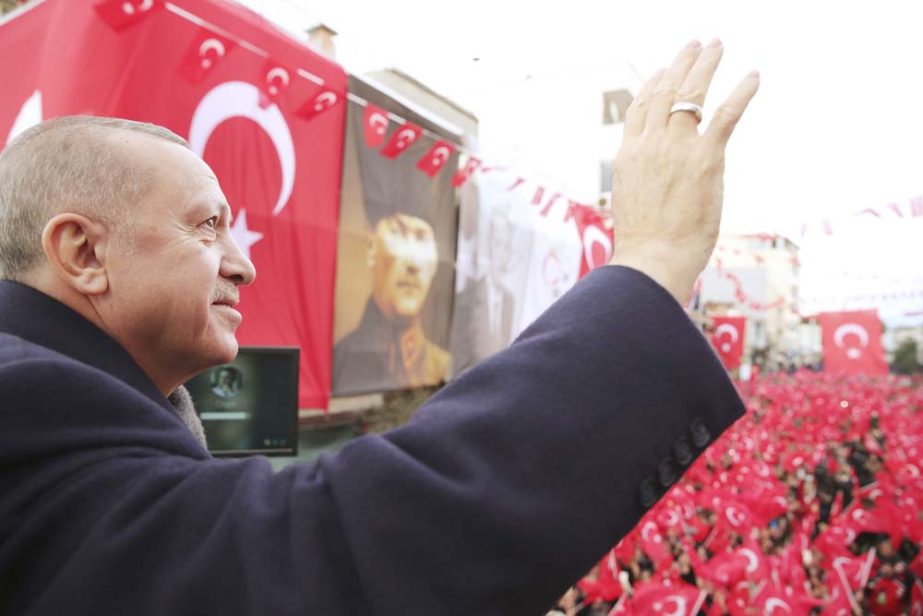
AP, Ankara :
Turkey’s president announced Tuesday that a Russian delegation would arrive the following day to resume talks aimed at easing tensions in northwestern Syria. He also said no consensus was reached for a four-way meeting next month between the leaders of France, German, Russia and Turkey.
However, Recep Tayyip Erdogan said Russia’s Vladimir Putin may still come to Turkey next week for a bilateral meeting. Moscow has so far not confirmed a March 5 visit by the Russian president to Turkey. Erdogan spoke to reporters before departing for a visit to Azerbaijan.
Tensions have been running high amid a Syrian government forces offensive in Idlib and parts of Aleppo province, the last remaining rebel-held territories in Syria. The government forces have captured dozens of towns and villages in the Russian-backed offensive since December. More than 900,000 people have been displaced, many of them now crowding an area close to the border with Turkey.
The Syrian government offensive has also shattered a fragile cease-fire agreement that Turkey and Russia reached in 2018, despite supporting rival sides in the Syrian conflict. Turkey has threatened military action unless Syrian forces retreat to positions they held before the advance.
“Russia supports Syria at the highest level,” Erdogan said. “Even if they deny it, we have evidence. We are forced to be in this fight.”
“A delegation from Russia will arrive in our country tomorrow,” Erdogan also said. Turkish officials had reported small progress in two previous rounds of Turkey-Russia meetings but said the results were not satisfactory.
Turkey had set up a dozen observations as part of the 2018 agreement, many of which are now behind Syrian government lines. Ankara has sent thousands of troops into Idlib in recent weeks.
At least 16 Turkish soldiers were killed in clashes during the Syrian government’s push on the last rebel stronghold.
Backed by Russia, government forces have been chipping away at Syria’s last major rebel bastion since December.
The region is run by jihadists and allied rebel groups, and is home to around three million civilians.
The violence has forced 900,000 of them to flee their homes or shelters, more than half of them children.
Inside their new underground home, Darra’s children huddle on a carpet around a tray covered in small bowls of hummus and dried oregano in olive oil.
Sunshine seeps in only from the staircase, the only source of light to cast away the dank darkness.
In a corner, the family has piled its scant belongings under a red and navy blue blanket.
“We’re suffering from the humidity. The kids are sick,” he said, as nearby one of them started crying.

